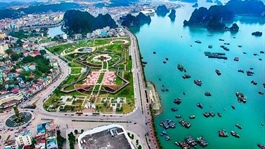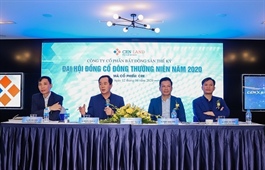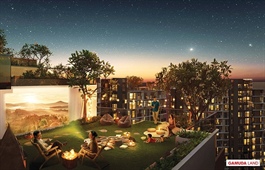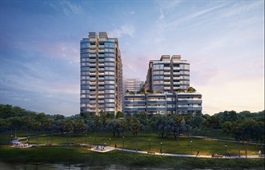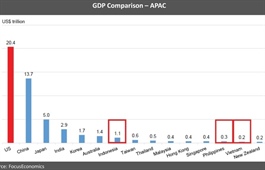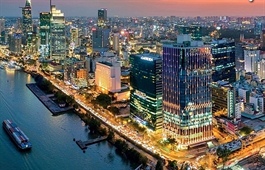Rewarding foreign property buyers
Rewarding foreign property buyers
With the increasing demand on the second home and condotel market, the Vietnam Real Estate Association has suggested the government to permit foreigners to buy holiday property and second homes in Vietnam. Kai Marcus Schroter, CEO of Hospitality Tourism Management, shares his views on this proposal with VIR’s Bich Ngoc.

Kai Marcus Schroter, CEO of Hospitality Tourism Management
|
Should Vietnam permit foreigners to buy holiday property and why?
In my opinion, this is not only feasible but a necessary move for Vietnam to stay attractive as a hot destination for foreign investment. There are many foreign investors living and working in Vietnam who wish to secure their future in the country by buying a second home, landed property or an apartment.
However, even with the new Law on Land having come into force in 2016, ostentatiously permitting foreigners to acquire property, there have in fact been various restrictions and obstacles to do so, for various reasons, but mainly security concerns.
When amending the Law on Land, Vietnam opted for an open and wide base to legitimise foreigners, basically allowing anybody with a visa to buy.
The actual acquisition of ownership titles is, however, very narrow and heavily restricted. This means that the government’s initiative did not bring the expected interest from foreign buyers or the desired effects to the real estate market.
I very much understand the Vietnam’s inherited security concerns. I never understood, however, why Vietnam government did not opt for narrow legitimacy – for example granting the right to acquire property only to foreigners who hold a minimum of five years temporary or permanent residence in the country.
This would immediately eliminate any security concerns, but allow a much wider discretion in the actual acquisition of property ownership.
Since 2006 the Thai government has offered retirement visas for foreigners to buy second homes. The result is that many such properties in hotspots of Phuket, Hua Hin, and Pattaya were sold to foreigners. What lessons should Vietnam take from this?
I am not very familiar with the Thai property market but I know that many foreigners have chosen Thailand as their place to retire. And they have been very welcome by the Thai government, through various preferential policies.
Retirees do not only contribute to the market by investing in second homes, but also through consumption and spending in the local economy. In addition, many bring extensive work experience and knowledge to the country.
Unfortunately, Vietnam has so far largely overlooked this potential, for one reason or another. More and more foreigners live and work in Vietnam, many of them stay for many years and with local families. They will plan to retire here. So again, I believe it is time for Vietnam to consider a relaxation in this regard.
But again, I think Vietnam should choose a narrow entry base and a wide discretion of acquiring ownership. Vietnam should firstly “reward”, and benefit from, those foreigners who have lived and contributed to the country for some time.
They are deeply integrated into society and there will be no clusters of foreigners. Vietnam government should this time go for a narrower entry base which does not require much control or restrictions on ownership.
If foreigners are permitted to buy second homes and condotels in Vietnam, what benefits could investors earn from the market?
For most retirees, the appreciation of value of their investment is secondary to the benefits of lifestyle, safety, and comfort. So retirees are not typical investors who speculate on the return on their investment. They rather look for peace of mind.
Regarding the challenges outlined previously, I believe it is time for Vietnam to take a more relaxed approach to allowing foreigners to acquire property as a second home.
Foreigners do not pose any greater threat than Vietnamese people. Security concerns can be addressed by a narrower entry base but wider approach to the actual acquisition of property and ownership.
How do you evaluate the potentiality of the Vietnamese second home and condotel market to foreign developers and buyers?
Given the above suggestion of a narrower entry base but a wider choice of opportunities and less restrictions, the potential is considerable.
Vietnam has gained much in attractiveness in recent years; the lifestyle is desirable and comfortable, and living costs are reasonable. Under the right circumstances, this will be a win-win for both sides. We should avoid or define the term ‘second home’. Foreigners do not like to be restricted on choice of location or type of property so ‘second home’ should be defined as any kind of property, may it be landed property, villa, houses, apartments, or condotel units.






